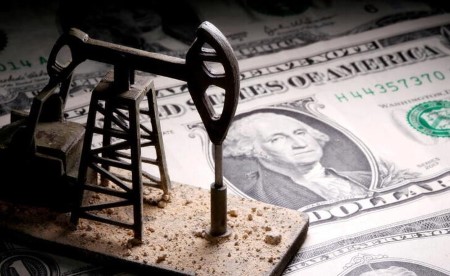




Policy Rate Updates: BSP outlook — cloudy with a chance of rate cut
 DOWNLOAD
DOWNLOAD

January Economic Update: Growth slows, prices rise
 DOWNLOAD
DOWNLOAD

Inflation Update: Up, up, and away?
 DOWNLOAD
DOWNLOAD


Oil drops 1% as US in no rush to refill strategic reserve

BENGALURU, March 23 (Reuters) – Oil prices settled 1% lower on Thursday, reversing early gains after US Energy Secretary Jennifer Granholm told lawmakers that refilling the country’s Strategic Petroleum Reserve (SPR) may take several years.
Granholm’s comments fed worries about potential oversupply, especially as the Energy Department plans to proceed with an additional release of 26 million barrel as part of its congressional mandate, UBS analyst Giovanni Staunovo said.
Brent crude futures fell by 78 cents, or 1%, to settle at USD 75.91 a barrel. US West Texas Intermediate crude futures slid by 94 cents, or 1.3%, to end the session at USD 69.96 a barrel.
Oil benchmarks had pushed about 1% higher before Granholm’s comments, underpinned by a lower dollar and higher gasoline prices.
The dollar index traded at its lowest since Feb. 3, a day after the Federal Reserve hinted it was nearing a pause in interest rate hikes. A weaker greenback makes dollar-denominated oil more attractive to holders of foreign currencies.
Federal Reserve policymakers believe beating back inflation may require just one more interest-rate hike this year but less easing next year than most had expected just three months ago.
Also supporting crude prices, RBOB gasoline futures hit a 10-day high after the US Energy Information Administration said stockpiles of the product fell last week by the most since September 2021. EIA/S
Higher gasoline demand will encourage refiners to use more crude oil to make fuel, Mizuho analyst Robert Yawger said.
“That large draw of 6 million barrels in EIA’s report has left a big impact on the market as the gasoline situation is looking a bit tight here,” Yawger said.
Also supportive, Goldman Sachs said commodities demand was surging in China, the world’s biggest oil importer, with oil demand topping 16 million barrels per day.
The bank forecast Brent would reach USD 97 a barrel in the second quarter of 2024.
(Reporting by Shariq Khan, additional reporting by Shadia Nasralla, Jeslyn Lerh; Editing by Mark Potter, David Gregorio and Mark Porter)
This article originally appeared on reuters.com





 By Reuters
By Reuters